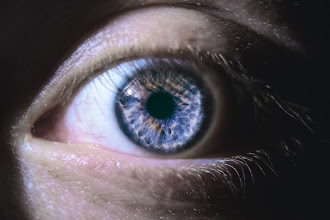It is not a recent development that the young generation is
worn out to the point of burnout. It's not surprising that we are worn out
given the strain of social media, the gig economy, and living in a world that
feels more and more unstable. Not to add, we are losing ground mentally.
 |
| Technology affects mental health. |
The content we view online is the source of social
comparison, feelings of marginalization, and cyberbullying, among other things.
These detrimental effects increase anxiety and despair. Technology has a
harmful impact on our bodies as well.
There are a few typical ways in which technology may
influence people's mental health.
Depression and anxiety
You might experience anxiety if you misinterpret someone's emotions or take anything out of context, or if someone else does the same to you. This occurs more frequently online than in person since text messages, Facebook postings, and other similar mediums do not reflect subtleties of human communication like the tone of voice or facial gestures.
 |
| Depression goes beyond simply being down. |
Anxiety can result
from excessive thinking and fretting over what you've written or who has or has
not liked or commented on your post. In addition, social media can serve as a
forum for many sorts of disrespect, which can cause anxiety, despair, low
confidence, and low self-esteem.
Loneliness
Social media and other technologies are meant to foster
human connection, but occasionally they may have the opposite impact.
Finding methods to limit back on
social media use, such as putting time restrictions on social apps, may
help some individuals feel less lonely.
Changes in Children's Neurology
The term
"neuroplasticity" describes the anatomical and functional changes in
the brain brought on by the maturation of new neurons throughout time, which
result in experience-dependent change. Because neurons link to one another more
quickly in childhood than in adulthood, early events have a significant
influence on how the brain develops. Children’s and adolescents'
neuroplasticity is impacted by technology use, which can lead to changes that
may be temporary or long-lasting.
Eye Strain
Eye strain can result from
focusing on a screen for an extended period. The blue light from a screen
causes you to blink less, and the movement of the screen makes it more
difficult for your eyes to focus. The screen is generally not placed at the
appropriate distance or angle, which might lead to additional strain
Eyestrain is when your eyes grow fatigued after prolonged use.
Unhealthy Sleep
Late-night screen time lengthens
the time it takes to fall asleep. Your electronic devices produce blue light,
which influences melatonin, a hormone that controls your sleep
Playing video games, texting pals,
or exposing yourself to information that stimulates your mind and makes you
think, such as YouTube videos and the news, are some additional causes of
nighttime restlessness.
References:
[1] “How Technology can effect Mental Health and cause Anxiety.” https://www.bolnews.com/health/2023/01/how-technology-can-effect-mental-health-and-cause-anxiety/ (accessed Jan. 13, 2023).
[2] “Modern technology and mental health | Health Matters | Circle Health Group.” https://www.circlehealthgroup.co.uk/health-matters/health-and-wellbeing/modern-technology-and-mental-health (accessed Jan. 13, 2023).
[3] B. A. Primack et al., “The association between valence of social media experiences and depressive symptoms,” Depress Anxiety, vol. 35, no. 8, pp. 784–794, Aug. 2018, doi: 10.1002/DA.22779.
[4] P. Limone and G. A. Toto, “Psychological and emotional effects of digital technology on children in covid‐19 pandemic,” Brain Sciences, vol. 11, no. 9. MDPI, Sep. 01, 2021. doi: 10.3390/brainsci11091126.
[5] H. A. M. Zayed, S. M. Saied, E. A. Younis, and S. A. Atlam, “Digital eye strain: prevalence and associated factors among information technology professionals, Egypt,” Environmental Science and Pollution Research, vol. 28, no. 20, pp. 25187–25195, May 2021, doi: 10.1007/s11356-021-12454-3.
[6] “ThisisyourbrainonlineforPre-CollegeFacultyandStaffMarch2015”.